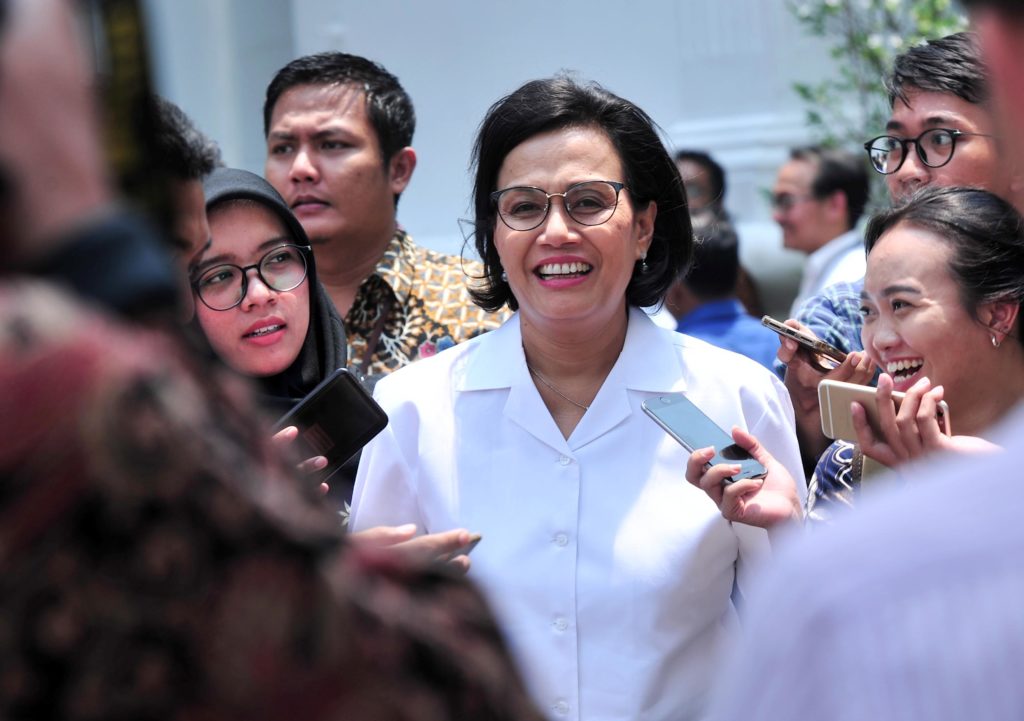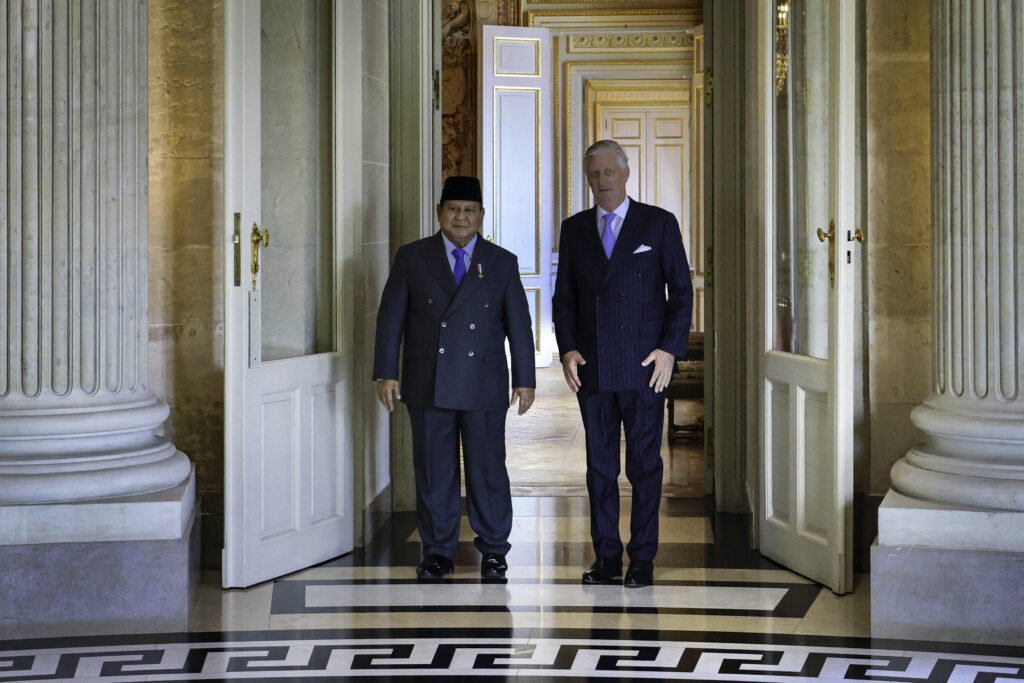Finance Minister Asks New Cabinet Members to Use Existing State Budget

Minister of Finance Sri Mulyani Indrawati answers questions from journalists after Plenary Cabinet Meeting at the Merdeka Palace, Jakarta, Thursday (24/10). Photo by: JAY/PR.
Minister of Finance Sri Mulyani Indrawati has asked new Cabinet Ministers to use the Existing State Budget (APBN) until the end of December.
“There are only two months left this year, so we hope that all Ministries/Institutions, especially those who oversee new Government Ministries, to ensure the overall implementation of the 2019 State Budget,” Sri Mulyani told reporters after attending Plenary Cabinet Meeting at the Merdeka Palace, Jakarta, Thursday (24/10).
The Minister added that the Cabinet Ministers, especially those who face nomenclature changes, must immediately complete the transition period so there is no delay or slowdown in the use of the budget.
For 2020, she added, the plan is that budget documents will not refer to new Ministries/Institutions since the existing State Budget Law has been issued under the previous administration.
“Therefore, the changes need to be completed within the next two weeks, so that on 15 November the President can deliver Budget Implementation List (DIPA) to all Ministries and Institutions,” the Minister explained, adding that some Ministries may need to talk to the DPR to complete the budget changes.
Sri also said that it is not possible to amend the 2020 State Budget, while Budget Implementation List (DIPA) is subject to change. The Ministers, she added, are expected to review the DIPA within the next three weeks and to finalize it with the DPR by 15 November.
In the meantime, Sri also said that the President has underlined the importance of coordination in budget allocation. Therefore, the role of Coordinating Ministers is very important.
“Coordinating Ministers coordinates various ministries. Coordinating Minister for Human Development and Culture coordinates 22 Ministries/Institutions. Thus, even though the Coordinating Minister’s budget is limited, the total budget of the Ministries/Institutions (under the Coordinating Ministry) allocated in 2020 is Rp288 trillion, plus Rp241 trillion Regional transfer, plus State Capital Injection of Rp29 trillion. The Budget covers education, health, social affairs, village development and others,” the Minister said.
She added that the Coordinating Minister for the Economy, Airlangga Hartarto has a lot of experience in the industrial field, which will help him to complete the transition period smoothly. Coordinating Minister for the Economy, she added, coordinates 21 Ministries/Institutions, with a budget of Rp32 trillion, plus a Village Fund of Rp28.9 trillion and State Capital Injection of Rp48.4 trillion.
“We hope that (the Budget) will be able to strengthen the industry to improve our competitiveness,” she explained.
For Coordinating Minister for Maritime Affairs and Investment, she added, although the budget is limited (Rp65 trillion) the Coordinating Ministry provides Rp62.7 trillion plus Rp27 trillion incentive in the form of tax expenditure.
For Coordinating Minister for Political, Legal, and Security Affairs, the budget is Rp297 trillion. The largest budget allocation is for Ministry of Defense (Rp131 trillion).
“(The budget) will be allocated for the salary increase for the TNI personnel, preparations for next year’s direct local elections and for improving security and defense in Indonesia,” Sri Mulyani added.
On that occasion, the Minister of Finance also stated that the 2019 State Budget is affected by the recent economic conditions.
She went on to say that the economic actors, especially in the manufacturing sector, are facing several challenges while mining sector has declined significantly. Therefore, she added, the deficit is likely to widen.
“I have already issued a Decree of Minister of Finance on Deficit. The financing for the deficit might not be too large but we will continue to combine domestic and international (financing). Today, global interest rates are very low, so this will provide an opportunity for us to find the best financing,” she said. (FID/JAY/ES)
Translated by: Ridwan Ibadurrohman
Edited by: Yuyu Mulyani








